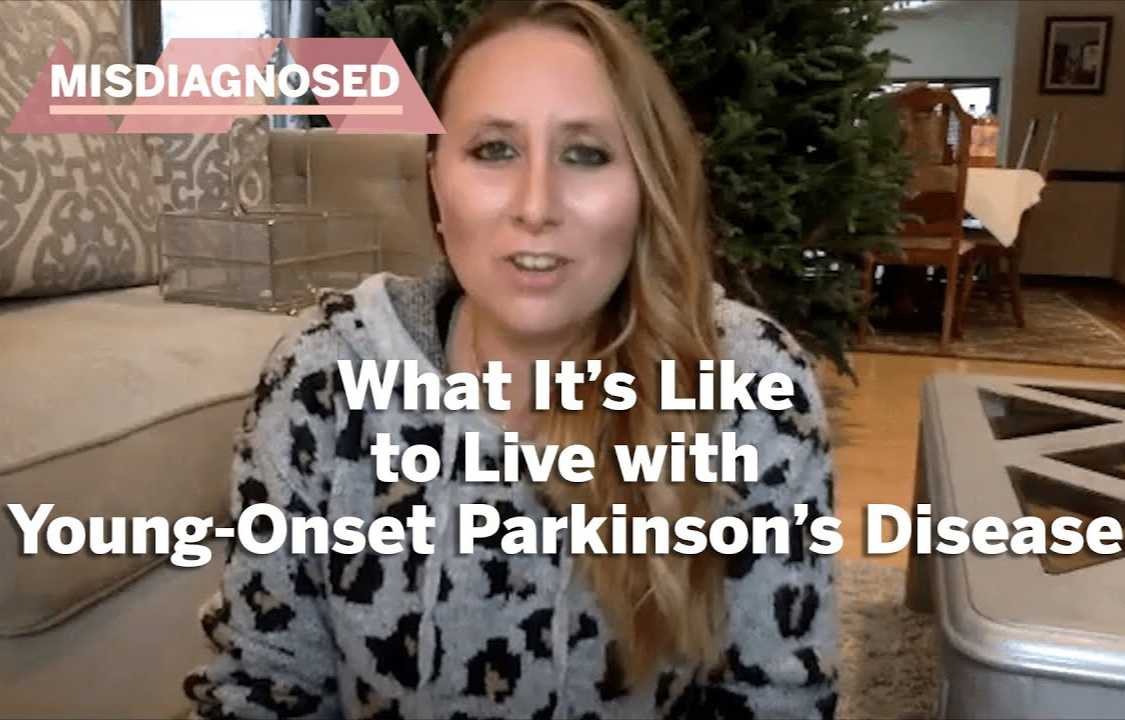Diagnosing early-onset Parkinson’s disease can be difficult.
Christina Korines’s journey with Parkinson’s disease is a testament to the resilience of the human spirit and the importance of advocating for one’s own health. Parkinson’s disease, typically associated with older adults, initially eluded diagnosis in Christina’s case due to her young age. Her journey is a compelling narrative of perseverance, misdiagnoses, and ultimately finding the right path to understanding and managing her condition.
In 2006, at the age of 22, Christina experienced the first signs of Parkinson’s disease. While driving with her boyfriend, Nick (now her husband), she noticed a tapping sensation in her leg. Alarmed, they pulled over, thinking it was a car issue. It was during this moment that Christina’s life took an unexpected turn, as her leg involuntarily hit the car door. She initially attributed these tremors to nervousness.
At the time, Christina worked as a teacher’s aide at an elementary school. Her tremors resurfaced, and she faced challenges such as difficulty controlling scissors with her right hand while cutting out letters for her students. Concerned about her worsening symptoms, Christina sought medical help.
However, her early encounters with healthcare providers led to misdiagnoses and dismissals. Her general practitioner initially attributed her symptoms to anxiety and recommended psychiatric evaluation, leading to a diagnosis of severe ADHD and medication that didn’t align with her previous experiences as a high-achieving student. Christina’s persistence and trust in medical professionals pushed her to consult a neurologist after her symptoms continued to deteriorate.
The neurologist explored the possibility of multiple sclerosis (MS) due to her symptoms but found no evidence of it in her MRI. Remarkably, the neurologist downplayed the notion of Parkinson’s disease due to Christina’s young age, humorously suggesting that she would be in the Guinness Book of World Records if she had it. Unfortunately, this initial encounter left her feeling unheard and unsure of her condition.
Frustrated by the lack of answers, Christina put her health on hold for a few years but continued to grapple with her symptoms. It wasn’t until after the birth of her daughter that her symptoms escalated, with issues like limping, dragging her right foot, and impaired speech. Concerned for her well-being, Nick encouraged her to seek the opinion of a specialist in MS.
A new physician performed numerous tests, including bloodwork and MRI, but found no indication of MS. Despite the absence of an MS diagnosis, the doctor raised the possibility of Parkinson’s disease, prompting further evaluation. This evaluation involved a test that required discontinuing breastfeeding for 48 hours, a decision that weighed heavily on Christina as a new mother, ultimately leading her to avoid the test.
Frustrated and disheartened, Christina pursued another opinion, only to receive contradictory diagnoses of both MS and generalized anxiety disorder, with one doctor recommending unconventional treatment advice. The dismissive nature of the doctor’s response left Christina questioning her own sanity.
Years later, after the birth of her second daughter, Christina’s symptoms intensified, causing her to have falls and affecting her mobility, speech, and sense of smell. Nick’s unwavering concern led her to reconsider the possibility of Parkinson’s disease, a suspicion she had not entirely dismissed.
Seeking the expertise of specialists at NYU Langone’s Fresco Institute for Parkinson’s & Movement Disorders in New York City, Christina underwent a comprehensive evaluation. During the assessment, her limping and tremors were evident, prompting her physician to inquire further about her symptoms. It became increasingly clear that Parkinson’s disease was a possibility.
In a poignant moment, the doctor confirmed the diagnosis of young-onset Parkinson’s disease, a rare occurrence in individuals under 50. This life-altering diagnosis left Christina and Nick in tears, but it marked the beginning of a new chapter in their journey—one of understanding and managing the condition.
Parkinson’s disease, a progressive neurological disorder, often presents with symptoms such as tremors, stiffness, and mobility challenges. In Christina’s case, early-onset Parkinson’s progressed at a slower rate, enabling her to start treatment—such as medication and physical therapy—sooner, giving her a chance to maintain a higher quality of life.
Following her diagnosis, Christina embarked on a treatment journey, initially trying medication that had adverse side effects. She experienced weight gain, sleep disturbances, and compulsive behaviors, emphasizing the complex nature of managing Parkinson’s symptoms. Her determination led her to explore holistic approaches to managing the disease without medication.
While briefly forgoing medication, Christina implemented lifestyle changes, including boxing, regular walks, weight training, and speaking with a therapist to address her mental health. She found solace in these activities, which not only improved her physical condition but also allowed her to cherish the moments when she could perform everyday tasks with ease.
Parkinson’s disease comes with its share of mental health challenges, and Christina has faced anxiety as part of her journey. With the support of her medical team and her own determination, she has pursued a well-rounded approach to managing her condition and its associated emotional impact.
Throughout her ordeal, Christina emphasizes the importance of self-advocacy and listening to one’s body. Her experience underscores the significance of seeking second opinions when faced with medical uncertainty. While healthcare providers play a crucial role in diagnosis and treatment, the individual’s instincts and understanding of their own body should not be overlooked.
Christina’s story serves as a source of inspiration, reminding us all to be grateful for what we have and to fight for our well-being. Her unwavering faith, support system, and determination have empowered her to face Parkinson’s disease head-on, setting an example for others navigating their own medical journeys.

